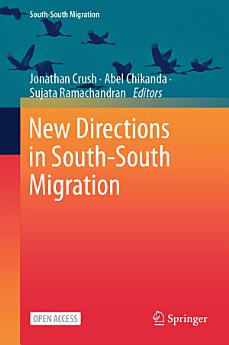New Directions in South-South Migration
About this ebook
This is an open access book.
About the author
Jonathan Crush is University Research Professor at Wilfrid Laurier University in Canada and Professor Extraordinary at the University of the Western Cape in South Africa. He founded the Southern African Migration Programme (SAMP), a consortium of Canadian and African researchers); the African Food Security Urban Network (AFSUN), a research, policy and capacity-building network of Canadian and African universities, NGOs and municipal governance network; and the Hungry Cities Partnership, an international network of cities and city-based partner organizations which focuses on the relationships between rapid urbanization, informality, inclusive growth and urban food systems in the Global South. His recent book contributions include the Handbook on Urban Food Security in the Global South (Elgar, 2020) and Food and Nutrition Security in Southern African Cities (Routledge, 2018).
Abel Chikanda is an associate professor in the School of Earth, Environment & Society at McMaster University. He has held a Social Sciences and Humanities Research Council (SSHRC) postdoctoral fellowship at Queen's University and was a project coordinator at the Balsillie School of International Affairs. His main research interests include migration and development, refugee movement, food security, international development and the informal sector in Africa. His major book contributions include Diasporas, Development and Governance (Springer, 2016) and Mean Streets: Migration, Xenophobia, and Informality in South Africa (IDRC, 2015).
Sujata Ramachandran is the project manager for the New Frontiers in Research Fund (NFRF)-funded Remitting for Resilience/R2 Project of the MiFOOD Network and Hungry Cities Partnership at the Balsillie School of International Affairs and Wilfrid Laurier University. She was previously a Postdoctoral Fellow with this research network and continues to be involved in the SSHRC-funded MiFOOD (Migration and Food Security in the Global South) Project and the NFRF-IDRC-funded Women Feeding Cities Project. Sujata has extensive experience researching various aspects of migration in Canada, Southern Africa, and South Asia. Her research interests include migration and development, migrant integration, and migration governance. Her latest publications include a co-authored article on citizenship rights in India in Comparative Migration Studies and an invited commentary on migration and food security for International Migration. Sujata co-edits the MiFOOD Working Paper series.





